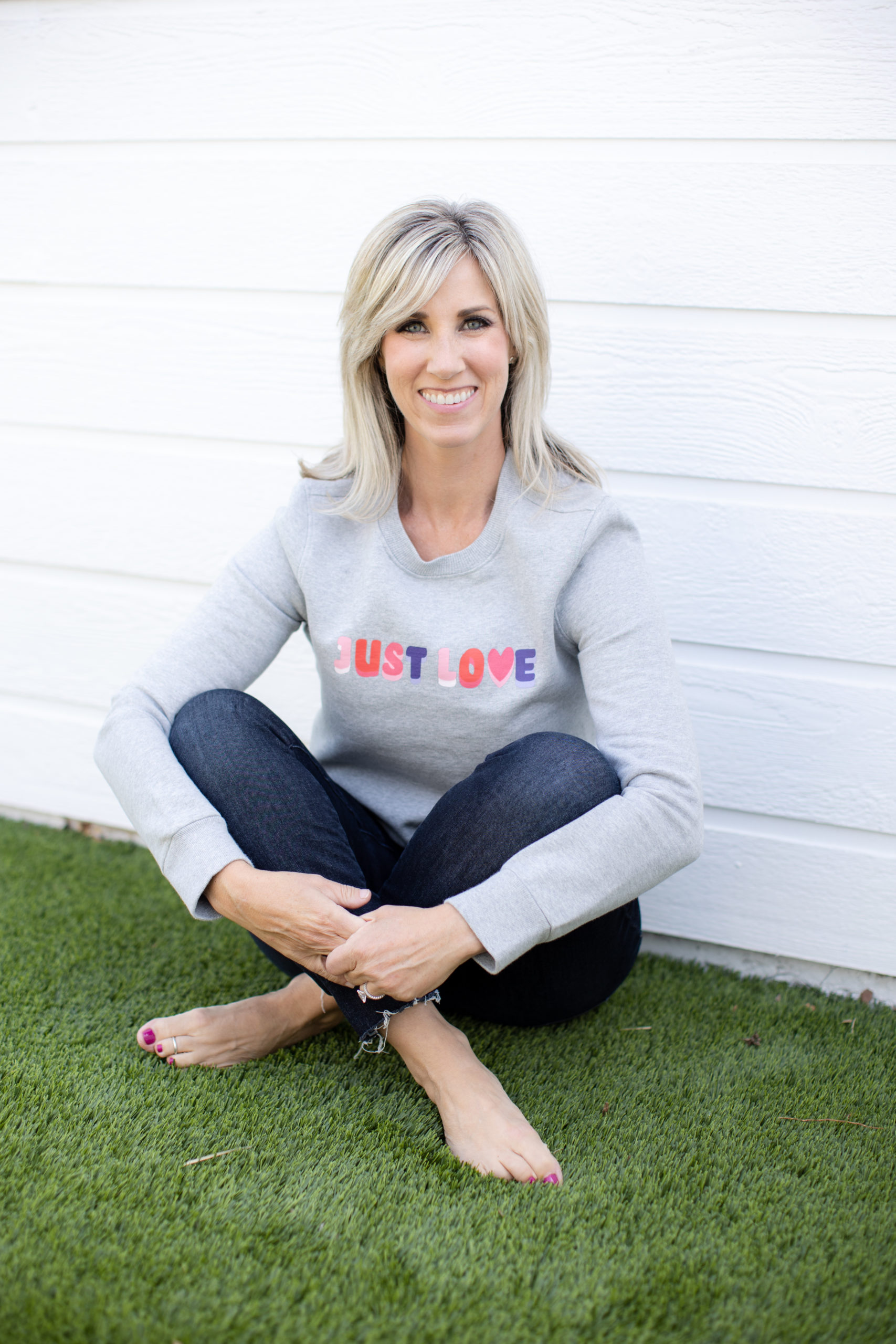
Has your husband ever said, “I’m sorry you feel that way?” Have you ever said, “I’m sorry you heard it that way?”
Knowing the correct way to apologize and say, “I’m sorry” to someone you’ve hurt after an argument is essential!
When you and your husband argue, you both want the other to apologize for how you’ve been treated, a hurtful behavior or word, or something else that has upset you.
When you learn how to say, “I’m sorry,” the argument ends and you are able to repair.
STOP TRYING TO PROVE YOUR POINT
During a fight, most couples end up going back and forth, trying to get their partner to understand their point of view. Partners work to prove their point and hope that their spouse will get it and apologize.
We all want the person we love to understand our feelings and make us feel better.
The problem is that if you are in an argument with your husband, he is not the only one who has to apologize.
If you are arguing, you have participated in “bad” behavior or done something hurtful as well.
Let’s break this down.
YOUR ANGER CAUSES YOU TO ENGAGE IN A FIGHT
When you get hurt or feel disappointed by someone you care about, you likely feel angry. Underneath your anger are vulnerable feelings like hurt or sad, but most people experience and express their anger, and anger leads to you to do or say something hurtful to the person who has hurt you, which adds fuel to the fire.
For example, let’s say that you ask your husband to come home early so you can exercise before dinner. He agrees but then shows up 30 minutes late, and now you no longer have time to workout.
As you wait for him, watching the clock tick, you grow ANGRY!
Underneath your anger, you also feel hurt, disappointed, rejected, disrespected, and so much more. You think to yourself, the only thing that will sort of make this better is if he apologizes, but he doesn’t.
Instead, he walks in the door and minimizes his tardiness. He may say something like, “It’s not a big deal, you still have time to exercise” and then proceeds upstairs to change his clothes, disregarding your feelings.
This interaction only increases your anger (hurt, disappointment, sadness), and you follow him upstairs and YELL at him.
NOW you are in a fight.
THE FIGHT HAS TRULY BEGUN
The moment you yell at him, you have participated in bad behavior also and owe him an apology as well.
Yes, your husband’s tardiness and disregard for your feelings and needs may have started the problem, but if you yell at him or are passive-aggressive, you engage in the negativity with your anger.
When you yell, shame, or behave passive-aggressively towards your husband, you hurt him too.
And you will need to apologize, ALSO!
SAYING I’M SORRY CHANGES THE CONVERSATION
An apology will change the conversation. It will deescalate you and your husband from a place of anger and hostility to a working discussion.
Once apologies are verbalized, you can begin to problem solve and express needs.
Most couples, unfortunately, remain angry and spin around in their conversation. They go back and forth, trying to get their partner to hear their perspective. They want an apology and acknowledgment for wrongdoings, so they point the finger.
Pointing your finger and trying to prove your point will only escalate a fight.
STOP POINTING FINGERS
To truly end a fight, you have to STOP POINTING FINGERS and STOP TRYING TO PROVE YOUR POINT. Instead, you must apologize for your role in the argument.
In the example above, the hurt and disappointed wife should say something like, “I am sorry I screamed at you when you came home, I could have handled my hurt feelings differently.”
Her husband could then reply with, “I’m sorry I arrived home late without calling and did not honor your request. I will be more thoughtful with my time in the future.”
Now, before I give you the step by step of an effective apology, let’s talk about what an apology is NOT!
“I’m Sorry You Feel That Way”
An apology is not, “I’m sorry, BUT…”
An apology is not, “I’m sorry YOU FEEL that way.”
An apology is not, “I’m sorry you heard it that way.”
An apology is NOT a statement that detracts from owning your behavior.
An apology IS communicating remorse, empathy, and understanding to the person you love.
So what is an apology? How do you apologize in a manner that your partner, or anyone you care about, can hear and receive?
Below are 10 Steps for saying, “I’m sorry” to someone you’ve hurt.
HOW TO SAY I’M SORRY:
- Think about your contribution to the fight – Yes, if you are in an argument with your husband, you have contributed. He may have said or done something hurtful, but if a fight ensued, you followed up with a harmful action or response. So first, think about your contribution to the fight and be prepared to acknowledge it.
- Identify your REAL feelings – When you fight, you likely become angry and yell. Anger makes you feel powerful and in control, but it only escalates and intensifies a fight. Instead of being angry, think about the emotion that you are feeling underneath your anger. Anger is a secondary emotion to something more vulnerable, and when you’re able to identify your true emotions, the conversation changes. “I felt lonely and worried when you came home late without calling.” vs. “Why do you always come home late. You don’t even care about me, my feelings, or my needs.”
- Set a time to talk – Talking in the heat of the moment can easily spin a conversation out of control. If you start to escalate while working through a conflict, take a break. Say to your spouse, “I am worried that we are going to say things that we will later regret. Let’s take a break and talk about this again in an hour.”
- Self-Soothe – During your break, it is essential to do something that will relax you or calm you. DO NOT use this time to figure out how you will win the argument. Use this time to take a walk, listen to music, meditate, do some yoga, read a book, etc. Your goal is to return to the conversation feeling calm.
- Take 3 Deep Breaths Together – When you come back together at your agreed upon time to talk, first sit together, and take 3 deep breaths. Do not start talking about the disagreement until you take 3 deep breaths together. This will help set a calm tone for your follow up discussion.
- Apologize – Apologize first. Tell your husband how you contributed to the fight. For example, “I’m sorry for speaking to you in that tone; I could have used a kinder tone and shared my feelings differently.”
- Share your REAL Feelings – Next, share your vulnerable emotions. The feelings that you identified UNDERNEATH your anger. “I felt hurt and dismissed when you arrived home late.”
- Listen to your Husband’s Feelings – Now pause, do not say anything else. Give your husband the space to express his apology and share his emotions. Even if you do not agree with each other’s feelings or perceptions of the fight, you have to allow your husband the opportunity to share and express his remorse, just as you expect him to do for you.
- Validate Each Other’s Feelings – This is an important step. You BOTH have to validate how the other one was hurt. Listen to the emotions that are shared and express remorse and compassion for your partner’s feelings. “I hear how my actions made you feel sad and disappointed; I am sorry for that.”
- Hug and Move Physically Closer – Once you have both validated each other’s feelings, it is time to hug and make-up. Physical touch will re-spark your intimate bond and help the two of you soften, move closer, and reconnect. Before you start to problem solve, you MUST have a physical repair.
- Move Forward with a Plan – After apologies and emotions are expressed and validated, and you feel closer as a couple, you can move into problem-solving. Working through the nuts and bolts of the how, what, and when comes at the end of your repair. DO NOT PROBLEM SOLVE BEFORE YOU BOTH APOLOGIZE
QUICK RECAP: Your ability to say I’m sorry to someone you’ve hurt, like your husband, matters. When you share your feelings, the two of you will move through an argument faster instead of allowing it to spiral out of control. Practice these 11 steps, and you will begin to heal and repair much quicker as a couple. Once you’ve healed you can focus on reconnecting and spending time together.





